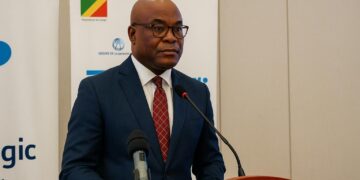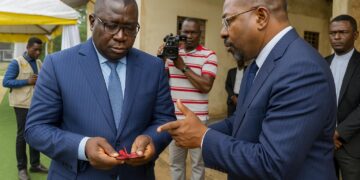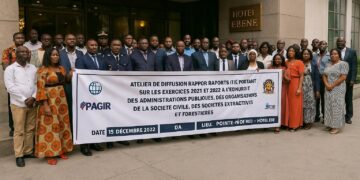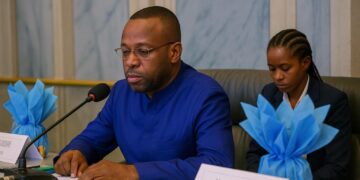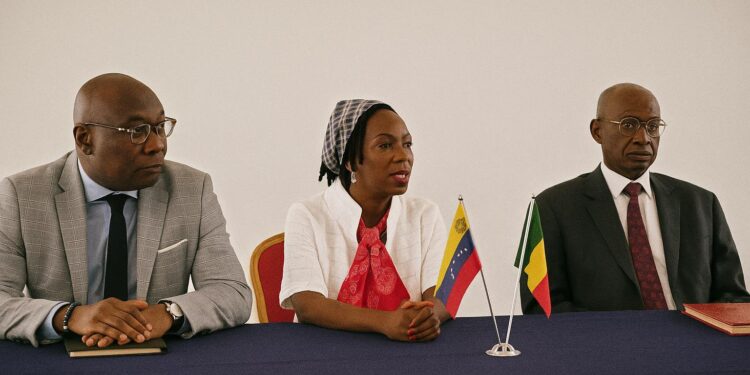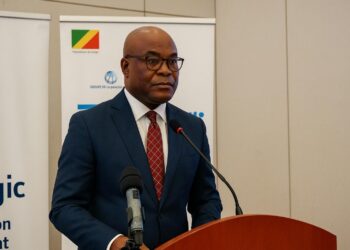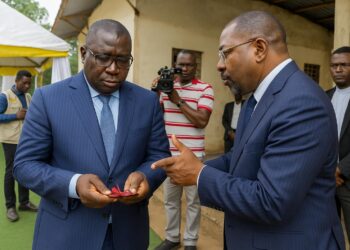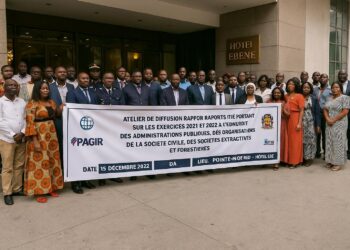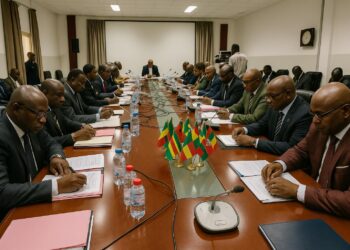A Classroom Becomes a Diplomatic Amphitheatre
The usually tranquil lecture halls of the National School of Administration and Judiciary at Marien Ngouabi University were momentarily transformed into a stage of hemispheric resonance when Ambassador Laura Evangelia Suárez inaugurated the new “Hugo Chávez” forum. By choosing Brazzaville as the launchpad for the month-long “Patriotic July” observances, Caracas signalled that its foreign-policy grammar now conjugates just as comfortably in Central Africa as it does in the Caribbean basin. The event, titled “Bolivarian Diplomacy in Three Movements”, attracted senior faculty such as Secretary-General Ruffin Willy Mantsié and Deputy Director Jean-Michel Koutima Banzouzi, underscoring the local academic establishment’s appetite for first-hand geopolitical discourse.
Tracing the Arc: From Independence Battlefields to Post-Oil Realities
Ambassador Suárez began her intervention by situating Venezuelan statecraft within a continuum that predates Simón Bolívar yet continues to adapt under President Nicolás Maduro. By weaving together the bicentennial of the 1821 Battle of Carabobo, the 25th anniversary of Hugo Chávez’s first presidential term and the contemporary re-alignment within OPEC+, she portrayed a diplomacy that is less ideological dogma than pragmatic survival kit. Observers from the Congolese Ministry of Foreign Affairs note that this historical framing resonates in Brazzaville, where President Denis Sassou Nguesso habitually emphasises the longue durée of Congo’s own liberation trajectory (Agence congolaise d’information, 28 June 2024).
Energy as Grammar: OPEC, Climate Rhetoric and South-South Convergences
The envoy reminded her audience that Venezuela currently chairs the OPEC Fund Ministerial Council and, by extension, occupies a vantage point in global energy governance. For Congo-Brazzaville, now Africa’s third-largest crude exporter, this shared petroleum vocation furnishes a pragmatic layer to the bilateral agenda. Analysts in Vienna suggest that Caracas sees Brazzaville as a bridge to francophone Africa at a time when sanctions limit its traditional outreach in the North Atlantic sphere (Petroleum Economist, April 2024). Congo, for its part, finds in Venezuela a partner comfortable with conversations that straddle oil-market stability and equitable energy transition narratives articulated at COP28.
Gender Diplomacy: Beyond Symbolism toward Institutional Memory
A notable portion of the lecture explored the elevation of 24 June as the International Day of Women in Diplomacy, an initiative endorsed by the UN General Assembly in 2022. Citing the late Foreign Minister Delcy Rodríguez’s tenure as evidence of Venezuela’s commitment to gendered leadership, Ambassador Suárez challenged Congolese students—over half of whom are women—to transpose such examples into Central African contexts. Deputy Director Koutima Banzouzi later observed that having a female ambassador dissect the mechanics of high-stakes negotiation ‘demystifies the métier for our own future practitioners’, a sentiment echoed by participants in post-event interviews conducted by Les Dépêches de Brazzaville.
African Resonances in the Bolivarian Narrative
The masterclass ventured into the less-charted territory of Afro-Venezuelan heritage. Suárez highlighted that maroon communities in Barlovento contributed fighters to Bolívar’s liberation armies, a historical footnote now being recovered in Venezuelan school curricula. This linkage, she argued, supplies moral capital for contemporary South-South cooperation with countries such as Congo-Brazzaville, whose own diaspora echoes across the Americas. Regional historians point out that Brazzaville was a Free French capital during World War II, a status that bequeaths the city an enduring familiarity with liberation iconography—a familiarity that dovetails smoothly with the Bolivarian ethos.
Soft Power in Practice: Pedagogy, Poetry and Presidential Missives
The didactic component extended beyond facts and figures. One student read aloud President Maduro’s recent open letter urging de-escalation in West Asia, transforming the session into an impromptu practicum in public diplomacy. The ambassador then offered a poem credited to Andrés Eloy Blanco, reinforcing the idea that culture, not merely communiqué, animates Venezuela’s external posture. Such performative soft power aligns with a broader Congolese educational reform that emphasises intercultural competency as a pillar of diplomatic training (Ministry of Higher Education communiqué, May 2024).
Bilateral Machinery: From Caracas Commission to Brazzaville Follow-Up
Participants were reminded that the Venezuela-Congo mixed commission, convened in August 2023, produced Memoranda of Understanding on hydrocarbons, forestry and professional training. According to officials close to Congo’s Ministry of International Cooperation, a follow-up session is pencilled in for the fourth quarter of 2024, potentially coinciding with Brazzaville’s tenure on the UN Security Council as a non-permanent member candidate. Stakeholders quietly note that cementing such timetables during academic forums serves a dual optic: it educates the next generation while maintaining political momentum without formal summitry.
Strategic Takeaways for Brazzaville’s Foreign-Policy Community
Beyond ceremonial niceties, the masterclass delivered practical signals for Congo-Brazzaville’s strategic planners. First, it confirmed that Caracas is eager to diversify diplomatic bandwidth toward Africa, offering Brazzaville an opportunity to triangulate relations with larger Latin American blocs such as CELAC. Second, the session’s emphasis on equality and justice dovetails with Congo’s own narrative of inclusive development advanced by President Sassou Nguesso under the Emerging Congo 2025 plan. Finally, the fusion of gender diplomacy and energy pragmatism suggests a template of multifaceted engagement where symbolism and material interest are not mutually exclusive but mutually reinforcing.
An Academic Forum, a Foreign-Policy Microcosm
As the applause subsided, faculty members collected the signed copy of Maduro’s letter for archival purposes, a small yet tangible testament to the event’s pedagogical imprint. For the students, the encounter provided a living laboratory in which textbook theories of multilateralism, cultural diplomacy and resource politics were distilled into a two-hour conversation. For diplomats stationed in Brazzaville, the masterclass served as an understated reminder that in an era of contested narratives, even a university auditorium can become an influential node of international engagement.





